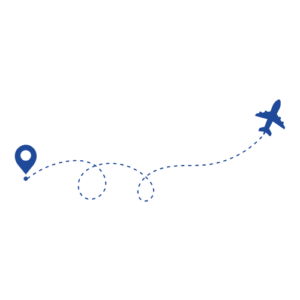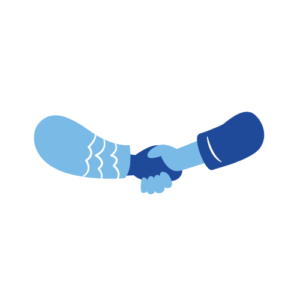In the last years, we have been working in the Democratic Republic of Congo, where rape is used as a weapon of war. Our mission is to accompany child victims and/or children born of rape in their psychological reconstruction and a possible future within their community.
In many countries, sexual violence is still used as a weapon of war to humiliate, inflict terror and destroy communities. It has very long-term consequences for women, girls, and recently even babies. Dr. Mukwege (surgeon, Nobel Peace Prize 2018) provides reconstructive surgery to these victims at Panzi Hospital in South Kivu. To complement this medical treatment, Véronique De Keyser, Cathleen de Kerchove, Isabelle Durant and Marie-Dominique Simonet created the non-profit organization The Children of Panzi and elsewhere (CPE).
A three-year holistic methodology was developed in collaboration with the University of Liege (ULiège). This methodology is continuously taught to local teams of psychologists and psychosocial assistants.
The local team accompanies these young victims of serious violence using play therapy. In addition to this group therapy, our methodology includes individual therapy, support for mothers, support for families and local communities. This comprehensive care is complemented by support for education and prevention campaigns on various topical issues related to gender equality and conflict prevention.
CPE’s holistic approach takes into account the child and his or her trauma, the family dynamics and the community dimension. It therefore allows the child to rebuild and integrate into a favorable environment.

CPE trains and supports the medical and psychosocial specialists who take care of the victims. In Panzi, the social workers, psychotherapists and the group called the “darling mothers” are doing extraordinary work.
The staff is confronted with children and families in physical distress but lacks the tools to accompany and care for them. We are able to provide them with training and to work with them on the deep scars that rape leaves in the head and on the body, and in particular on the resilience that they encounter in the local culture.
Home visits allow CPE therapists to meet the child in his or her environment, to witness interactions with family members, to provide psychoeducation as needed, and to provide individual therapeutic interventions if necessary.
The first visits serve to establish a bond of trust not only with the child but also with the mother. This therapeutic alliance is essential for the success of the therapy. It favors the relationship, the communication and ensures a faster “better being” of the child.


Therapeutic playgrounds are organized twice a month in each village. They bring together children born of rape with children who have been sexually abused, as well as children from the village to avoid any form of stigmatization.
Each therapeutic playground explores a different theme as the therapy progresses.
In the first year, activities will be organized around the themes of identity, attachment and safety.
During the second year, children will have the opportunity to explore emotions, different resources, and themes such as guilt or stigma.
By the third year, the child is usually ready to address his or her traumatic history and to work on a possible future.
According to the 1989 Convention on the Rights of the Child, every human being has the right to learn to write and read and, through education, to develop as an adult, a moral and civic member of society.
Children who are victims of trauma are likely to experience difficulties in their schooling. Among the frequent symptoms of post-traumatic stress, we find difficulties in concentration, sleep disorders, revival,… These symptoms must be understood by the teaching staff and accompanied with professionalism. These children who have been deeply wounded must be given special attention in order to succeed in their studies, which are essential for their future integration.
This is why CPE helps families who are unable to pay for their children’s schooling, provides uniforms and school materials, and accompanies parents and teachers to give them the keys to adequate support for successful schooling.
The education of children also allows the social, economic and cultural development of a society.


Before we can prevent behaviors or make perpetrators accountable, it is necessary to raise awareness. This is what we propose with these prevention workshops with community and religious leaders, teachers and parents in the villages of Kavumu and Bunyakiri. We create collective reflections on the theme of the day, as for example in the case of a campaign on gender equality: dialogue is initiated on how to deconstruct sexist stereotypes and change the role of women in the community.
Mr. Brazos, the project’s educator, has been conducting these awareness campaigns for a few years and the results are slowly being felt in the families and the community. We are now considering reaching a wider audience through a partnership with local radio stations.

The expertise acquired in the DRC and the recognition of the effectiveness of the CPE protocol is of interest to more and more international NGOs. We have had the opportunity to train field workers from several organizations in the DRC as well as in Iraq.
More recently, we were able to share our experience with Children born of war, a group of associations working with children born of rape during war or conflict. The conference was organized in Sarajevo – Bosnia Herzegovina, in the presence of associations and public actors, victims of different conflicts.
Evaluations aim to have a global understanding of our actions and to assess the degree to which we have achieved our objectives. It also allows us to demonstrate the efficiency and relevance of our tools.
This is why we regularly evaluate the functioning of the association as well as the skills of the team and the clinical evolution of the children.
A regular evaluation of our association and our teams allows us to adapt our objectives and the required knowledge if necessary. It is therefore essential.


Our DRC team is frequently evaluated on two axes: skills and knowledge.
Our psychologists and assistants receive regular training. Thanks to this capacity building, the team is better equipped to accompany the children and their families. These supervisions also allow the psychologists to express themselves, to feel supported by the team in Belgium and to avoid suffering from vicarious stress.
At the beginning, in the middle and at the end of the three-year CPE program, the children are given psychometric tests. The aim is to assess the level of post-traumatic stress, the extent of dissociation and the level of parental stress which will inevitably have an impact on the child’s well-being.
CPE has created a mobile application for this purpose to make this exercise more fun.

Since its creation, CPE has worked in close partnership with international and local organizations. Our association could not function without the involvement of these actors. Our partners allow us to strengthen our field of action and our expertise. The association was founded on a partnership with the Panzi Foundation, after the request to take care of children born of rape by Dr. Mukwege at the Panzi hospital.


CPE works in close partnership with the Panzi Foundation DRC, which is the employer of the local CPE team. It provides the logistics and knowledge necessary for the successful implementation of the CPE program.
Our project coordinator is based in an office of the Panzi Foundation, she can at any time rely on the help of the other pillars of the foundation and be supported in the organization of her field visits. The village teams are also supported not only by the program coordinator, but also by other Panzi Foundation offices in the villages, such as the legal clinics.
The Panzi Foundation USA coordinates the various partners and assists us in the fundraising processes.
The organization has a partnership agreement with the Mukwege Foundation to provide training in Iraq.
Since its creation, CPE has been supported by the King Baudouin Foundation (Belgium and USA).
We work in close collaboration with the University of Liège (ULiège), notably for the validation of our holistic methodology.
